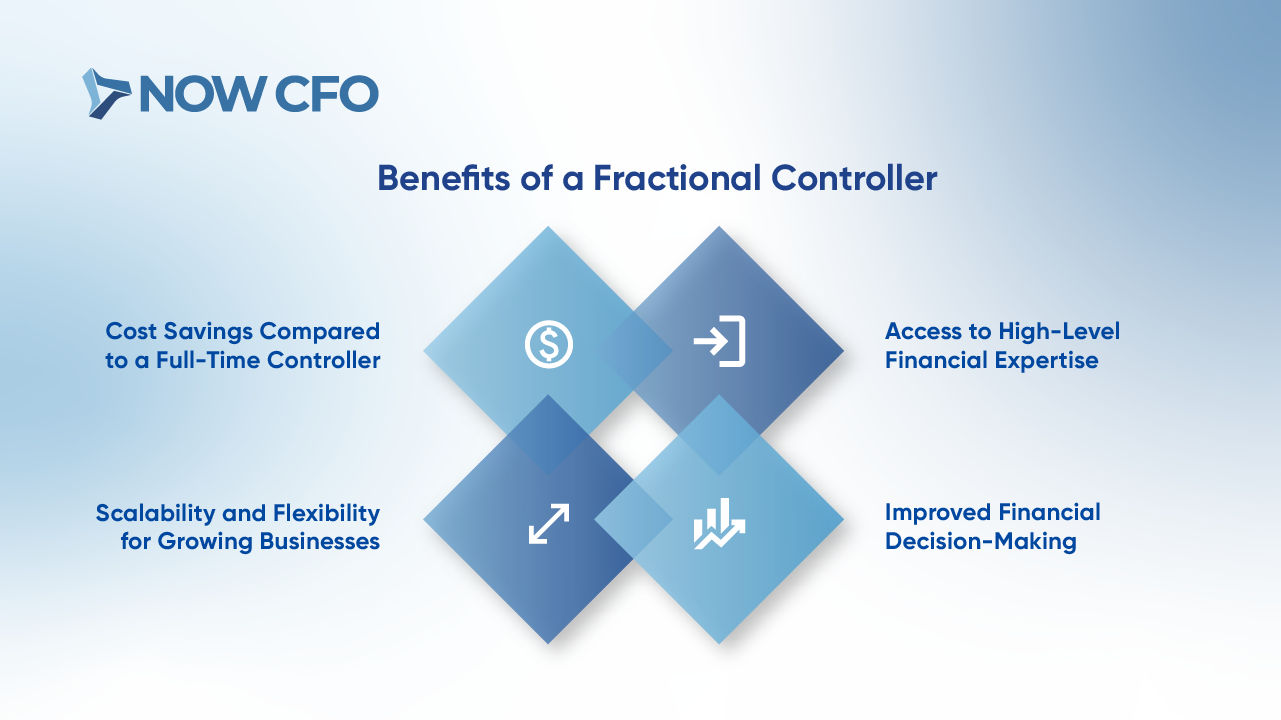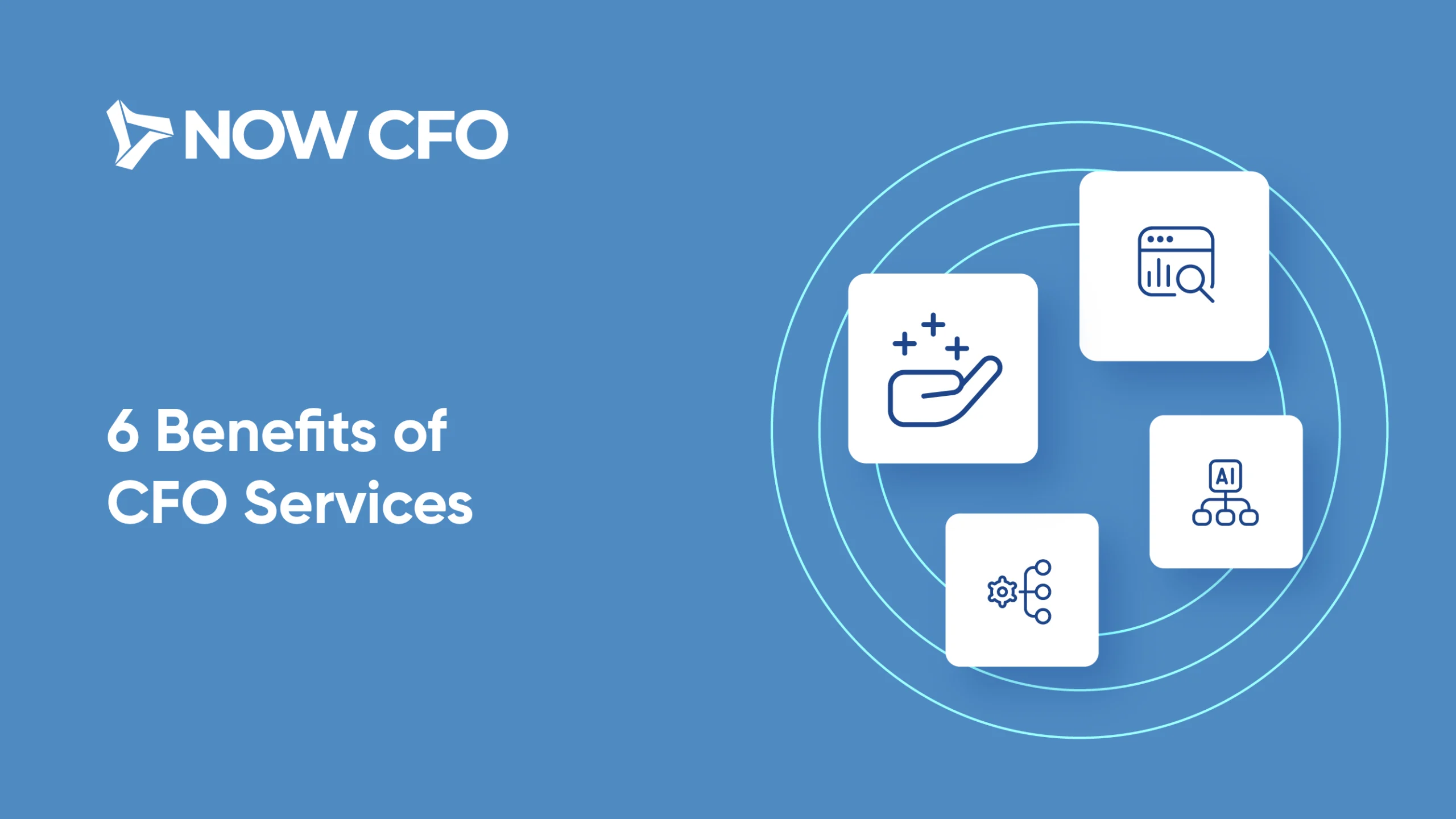
Effective financial management is crucial for success in today’s competitive business environment. However, many SMEs struggle to afford a full-time financial controller. This is where a fractional controller becomes invaluable.
A fractional controller is a part-time financial expert who provides high-level financial oversight without a full-time commitment. Businesses can access specialized financial expertise tailored to their needs by engaging a fractional controller.
Understanding the Role of a Fractional Controller
Understanding the role of a fractional controller is essential for companies seeking flexible financial management solutions. A fractional controller serves as a part-time financial expert, providing high-level oversight without the commitment of a full-time position
Definition and Responsibilities of a Fractional Controller
A part-time controller is a finance professional who works with your business on a part-time or project basis, providing the expertise of a full-time controller without the associated costs. Their key responsibilities include:
- Financial Reporting: Ensuring accurate and timely financial statements.
- Budgeting and Forecasting: Developing and monitoring budgets to control costs and allocate resources efficiently.
- Cash Flow Management: Monitoring cash inflows and outflows to maintain operational stability.
- Strategic Decision-Making: Providing insights and data-driven recommendations to support business strategy.
How a Fractional Controller Differs from a Full-Time Controller
While fractional and full-time controllers aim to maintain a company’s financial health, they differ in commitment and integration. A full-time controller is a dedicated employee who is deeply embedded within the organization, providing continuous oversight and long-term strategic planning.
In contrast, a fractional controller offers flexibility, working on a part-time or project basis, which can be more cost-effective for businesses with fluctuating financial needs. This adaptability allows companies to access high-level financial expertise without the commitment of a full-time hire.
When to Hire a Fractional Controller?
Determining the right time to hire a fractional controller depends on several factors:
- Rapid Growth: Experiencing quick expansion that complicates financial operations.
- Financial Complexity: Facing intricate financial transactions or compliance requirements.
- Budget Constraints: Lacking the resources for a full-time financial expert.
- Project-Based Needs: Requiring specialized financial skills for short-term projects.
Engaging a part-time controller in these scenarios ensures the business maintains sound financial practices without overextending its resources.

According to the SBA, SMEs account for 99.9% of all U.S. businesses. As these businesses expand, the complexity of their financial operations increases, making the expertise of a fractional controller invaluable.
Key Responsibilities of a Fractional Controller
Businesses often seek the expertise of a fractional controller to manage critical economic functions. These professionals are pivotal in ensuring the organization’s financial health and compliance.
Overseeing Financial Reporting and Accuracy
A fractional controller’s primary responsibility is maintaining accurate and timely financial reporting. They ensure that all financial statements, including balance sheets and income statements, are prepared by GAAP.
This meticulous attention to detail gives stakeholders a clear view of the company’s financial performance. For instance, the GAO emphasizes that audits provide assurances on the accuracy of actual spending data, thereby increasing the reliability of information used in budget planning.
Managing Budgeting and Cash Flow
Effective budgeting and cash flow management are crucial for business sustainability. A fractional controller develops comprehensive budgets that align with the company’s strategic goals. They monitor cash inflows and outflows to ensure sufficient liquidity for operations.
They can also forecast future cash needs by analyzing financial data and implementing strategies to optimize cash reserves. This proactive approach helps prevent cash shortages and supports informed decision-making.
Ensuring Compliance with Accounting Standards
Compliance with accounting standards and regulations is non-negotiable. Fractional controllers stay abreast of the latest financial regulations and ensure that the company’s financial practices adhere to these standards.
Furthermore, they conduct regular audits and reviews to identify discrepancies and implement corrective actions promptly. This diligence minimizes the risk of legal issues and financial penalties.
According to the U.S. Department of Housing and Urban Development, implementing key internal controls is essential to protect assets and ensure accuracy in financial reporting.
Strengthening Internal Controls and Risk Management
Robust internal controls are vital for mitigating financial risks. A fractional controller assesses existing control systems and enhances them to prevent fraud and errors. They establish procedures for transaction approvals, reconciliations, and access controls to safeguard assets.
Additionally, they identify potential financial risks and develop strategies to mitigate them, ensuring the organization’s long-term economic stability. By fulfilling these key responsibilities, a fractional controller provides businesses with the financial oversight necessary to operate efficiently and compliantly.
Benefits of a Fractional Controller
Engaging a fractional controller offers numerous advantages for businesses aiming to optimize their financial management. These professionals provide tailored solutions that align with an organization’s specific needs.

Cost Savings Compared to a Full-Time Controller
Hiring a full-time financial controller can be a significant financial commitment. According to Indeed, the average salary for a financial controller in the United States is approximately $106,041 annually. This figure doesn’t account for additional expenses such as benefits, taxes, and overhead costs.
In contrast, a fractional controller provides the same part-time expertise, allowing businesses to pay only for the services needed. This approach can lead to substantial cost savings, making high-level financial oversight more accessible, especially for small and medium-sized enterprises.
Access to High-Level Financial Expertise
Fractional controllers bring a wealth of experience from various industries and companies. This diverse background enables them to offer strategic insights and implement the best practices that might not be available internally.
By leveraging their specialized knowledge, businesses can enhance financial reporting accuracy, improve internal controls, and make informed decisions that drive growth. This access to high-level expertise ensures that companies can maintain robust financial management without a full-time controller.
Scalability and Flexibility for Growing Businesses
As businesses evolve, their financial management needs can change rapidly. A fractional controller offers flexibility to scale services up or down based on current requirements. Whether a company is experiencing rapid growth or entering a new market, a fractional controller can adjust their level of involvement accordingly.
This scalability ensures that businesses receive appropriate financial oversight without the commitment of a full-time hire, allowing them to adapt to changing circumstances efficiently.
Improved Financial Decision-Making
Accurate and timely financial information is crucial for effective decision-making. Fractional controllers ensure businesses have access to up-to-date financial data, enabling leaders to make informed choices.
By providing detailed analyses and forecasts, these professionals help identify opportunities for cost savings, revenue growth, and operational improvements. This enhanced decision-making capability supports strategic planning and contributes to the organization’s long-term success.
For More: Benefits of Hiring a Fractional CFO Service
Fractional Controller vs. Full-Time Controller: Which is Right for Your Business?
Choosing between a fractional controller and a full-time controller is a critical decision that hinges on several factors unique to your business. Understanding these factors can guide you toward the most suitable option.
Cost and Resource Considerations
Financial implications play a significant role in this decision. The average salary for a financial controller in the US is approximately $106,128 annually. This figure excludes additional costs such as benefits, taxes, and overhead associated with a full-time position.
In contrast, hiring a fractional controller allows businesses to access high-level financial expertise part-time, paying only for the services rendered. This approach can lead to substantial cost savings for small to medium-sized enterprises.
Business Size and Financial Complexity
The scale and intricacy of your business operations are pivotal in this choice. Data indicates that among the roughly 6 million small businesses with employees, 49% have just one to four workers, and 27% have between five and 19 employees.
A fractional controller can efficiently manage financial tasks for such businesses without needing a full-time hire. Conversely, larger organizations with complex financial structures may benefit from the continuous oversight provided by a full-time controller.
Short-Term vs. Long-Term Financial Needs
Assessing your company’s financial requirements over time is essential. If your business is navigating a transitional phase, such as a merger, acquisition, or rapid growth. A fractional controller offers flexibility to provide expertise during these periods without a long-term commitment.
On the other hand, if your organization demands ongoing financial management and strategic planning, investing in a full-time controller ensures consistent leadership and stability.
How to Choose the Right Fractional Controller for Your Business
Selecting the appropriate fractional controller is crucial for your business’s financial health. To make an informed decision, consider the following aspects:
Key Qualities to Look for in a Fractional Controller
When evaluating candidates, prioritize the following attributes:
- Financial Expertise and Analytical Skills: A firm grasp of accounting principles and the ability to analyze complex financial data are essential. This includes proficiency in financial reporting, budgeting, and forecasting.
- Industry Experience: Familiarity with your industry can provide valuable insights and tailored strategies. An understanding of sector-specific challenges enhances their effectiveness.
- Adaptability: The financial landscape is dynamic. A competent fractional controller should demonstrate flexibility and the ability to navigate changing business environments.
Questions to Ask When Hiring a Fractional Controller
To assess suitability, pose the following inquiries:
- What experience do you have in our industry?
This determines their familiarity with industry-specific financial practices. - Can you provide examples of how you’ve added value to businesses similar to ours?
This reveals their track record and potential impact. - What financial management software are you proficient in?
Ensures compatibility with your existing systems. - How do you approach communication and reporting?
Clarifies their style and frequency of updates. - Can you provide references from past clients?
Offers insight into their reliability and performance.
Working with a Financial Services Firm vs. Independent Contractors
Deciding between engaging a financial services firm or an independent contractor depends on your business needs:
Financial Services Firm:
- Advantages: Access to a team of professionals with diverse expertise; structured processes; scalability.
- Considerations: Potentially higher costs; less personalized attention.
Independent Contractor:
- Advantages: Personalized service; flexibility; often more cost-effective financial management.
- Considerations: Limited resources; dependency on a single individual’s availability.
Conclusion: Leveraging a Fractional Controller for Financial Success
A fractional controller provides businesses with expert financial oversight without the expense of a full-time hire. From managing financial reporting to improving cash flow and ensuring compliance, they help companies maintain stability and drive growth.
At NOW CFO, we provide fractional controller and CFO services tailored to your business needs. Our team of experienced professionals helps you navigate financial complexities, strengthen internal controls, and make informed decisions that support long-term success.
If you’re looking for a trusted partner to enhance your financial management, NOW CFO is here to help. Contact us today to learn how a fractional controller can bring financial clarity and efficiency to your business.
Learn More: Guide To Fractional CFO Services














